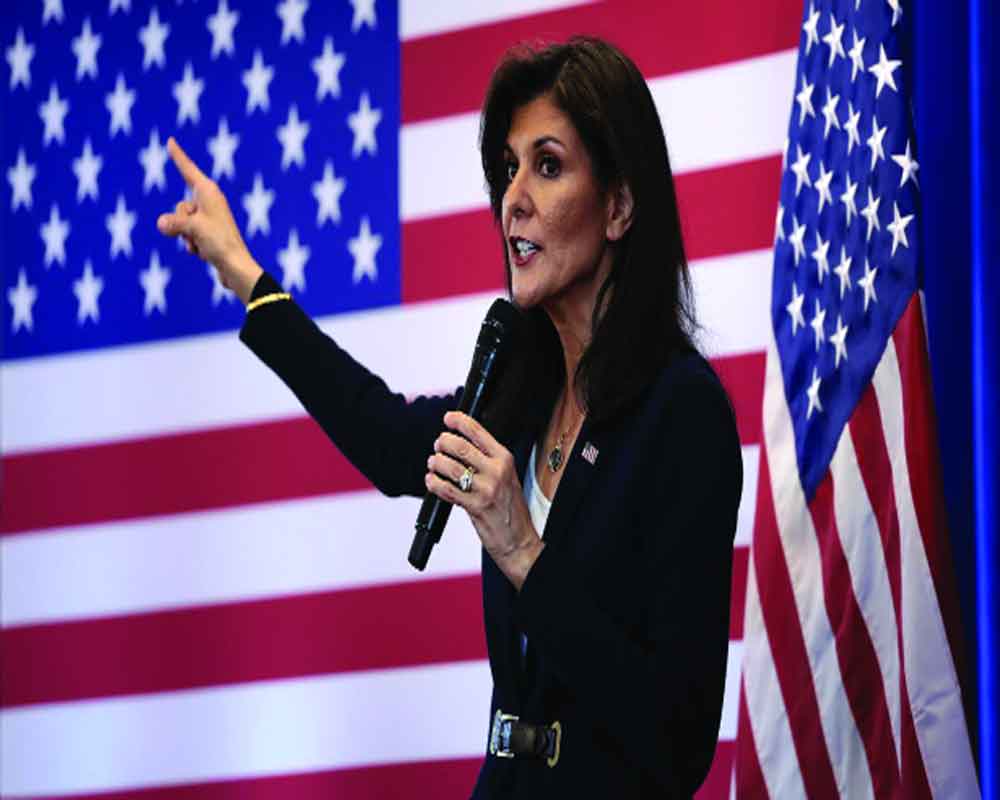The recent South Carolina primary victory of Donald Trump over Nikki Haley has reignited discussions surrounding gender biases in political elections
Donald Trump has won the South Carolina primary, defeating Nikki Haley, the last major Republican candidate in the race for Presidential nomination. On the eve of the poll, one of the South Carolinian Republican supporters in her home State, reportedly commented that ‘yes, Ms Haley did some fine things as governor, but, Donald Trump is the man’, which perhaps reflected the predominant public mood. Now, is this a case of a perceptible preferential bias among voters in favour of male candidates compared to female candidates?
‘Many voters seem to use gender as one of the ways to evaluate candidates, predict a candidate’s beliefs and competency — and use it as a shortcut for information about the candidates — and these subtle biases in some electoral contests, put a candidate at a disadvantage because of his or her gender’, said Kira Sanbonmatsu, a political science professor, Ohio University, who authored a 2000 study on ‘gender and voter’s preferences’. A study in French parliamentary elections across different polling stations found that votes for women are lower in municipalities with more traditional gender-role attitudes (Barbanchon and Sauvagnat, 2019). However, a 2018 research contended that ‘gender, through which men and women identify with masculinity and femininity with sets of roles, traits and ideals, strongly conditions the impact of sex on the voting pattern, but, it differs from case to case, depending on where one places oneself on a masculinity/femininity continuum’.
Many men, who do not strongly identify with hyper-masculinity, are equally or more liberal than women on various issues, while, many highly feminine women with very traditional gender identities, are more conservative on some issues, and thus, gender cannot be automatically treated as a ‘first-order’ or ‘meta’ identity, the study added. There is also a competing view that ‘gender is not a strong pull on the vote or on political attitudes, and that there are few male-female gaps in attitudes in voting’ (Amanda Bittner, University of Newfoundland& Elizabeth Goodyear-Grant, Queens University, 2017).
A study in Spain, after it adopted a law in 2007, that obliged political parties to include at least 40 per cent of women on every list for every election, didn’t find any evidence that it had either worsened women’s relative electoral performance or voters’ lower electoral support for exogenous reasons (Bagues and Campa, 2020). Nevertheless, in the 2018 midterms in the USA, sex and gender did play a prominent role, leading to large partisan gaps between men and women in casting their ballots. A study in India revealed that a ‘woman voter’ is more likely to vote for a male candidate, than a man to vote for a woman, as it is more about perception of society, than the candidates’ suitability’.
Sadly, women’s under-representation in electoral politics is a reality! World Economic Forum’s Gender Equality Report, underlined that so far only 25% of a hypothetical 100% gender gap has been closed in women’s political participation. Many political scientists explained the gap from the angle of supply and demand constraints, as there is ‘a shortage of potential candidates’, and also ‘lower appeal of women politicians in electoral battles’. Several socio-economic and cultural barriers keep women away from politics, and create ‘a higher opportunity cost of running for elections’ (Fox et al., 2001).
Women also tend to be less in number in professions that become a conduit for a political career (Welch, 1977, Clark, 1994). Studies also mentioned the ‘ambition deficit’, as many women, despite having the requisite professional and economic credentials, often fight shy of entering competitive politics (Niederle and Vesterlund, 2007&Fox and Lawless, 2004). Family and relational considerations dissuade many of them, as recent research in Sweden found that female politicians in mayoral positions experienced a significant increase in the likelihood of divorcing their partner(Folke and Rickne, 2020). On the other hand, ‘women are routinely demotivated by being told that they do not belong here, signifying a structured system of oppressive gender hierarchy in politics’. Sexism among party leaders is also rampant, more so, if they are aware of voters’ bias against women, as a votes-maximising strategy.
While, India witnessed an increasing turnout of women voters, in the 2019 election, but, the number of women candidates remained less than 9 per cent. Those who did get party tickets, mostly, have family political connections or are ‘dynastic’ politicians. The gender quota at PRIs ‘hasn’t created much larger candidacy responses at the state level’. However, a study (Bhalotra et al. 2018), analysing electoral data over three decades ( 1980-2007) found that a woman’s electoral victory leads to an 18.5 percentage point higher probability of having a woman as a major party candidate in the next election.
Now, as of November 2021, gender quotas have been adopted in 132 countries, either in the form of voluntary party or compulsory legislative quotas. A study (1995-2012) disclosed that such measures enhanced women’s representation from 11 percent to 21 percent. Some critics argued that it is ‘anti-democratic’, and ‘manipulate voters’ choices’, while, a section of women’s rights activists claimed, they are ‘disrespectful in the assumption that women cannot get seats on their own’, and are often negatively labelled as ‘quota women’. Nevertheless, it brought women in many least-developed countries like Rwanda, Uganda, and Tanzania to the political front, and increased their substantive representation on issues that are traditionally seen as gendered. India has already passed the Women’s Reservation Bill, 2023, its implementation cannot be put off to an uncertain date!
(The author is former Director General, Doordarshan & All India Radio, views are personal)


























